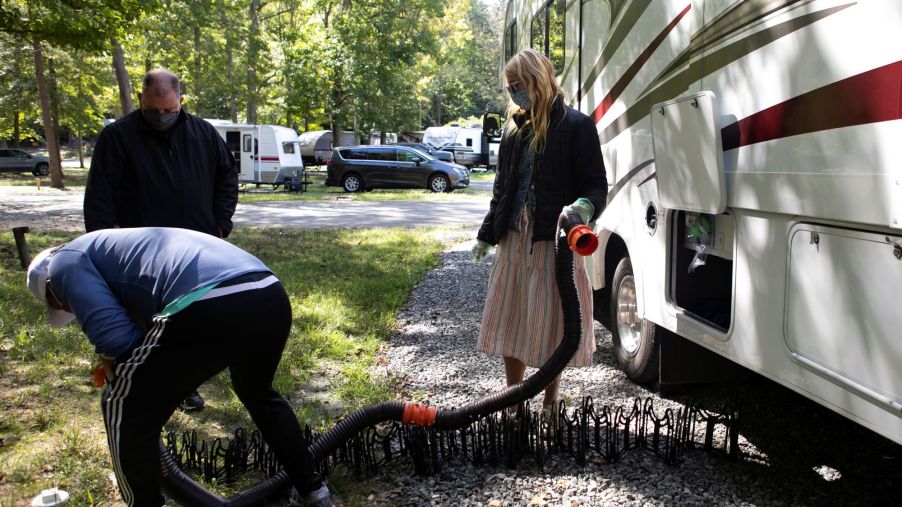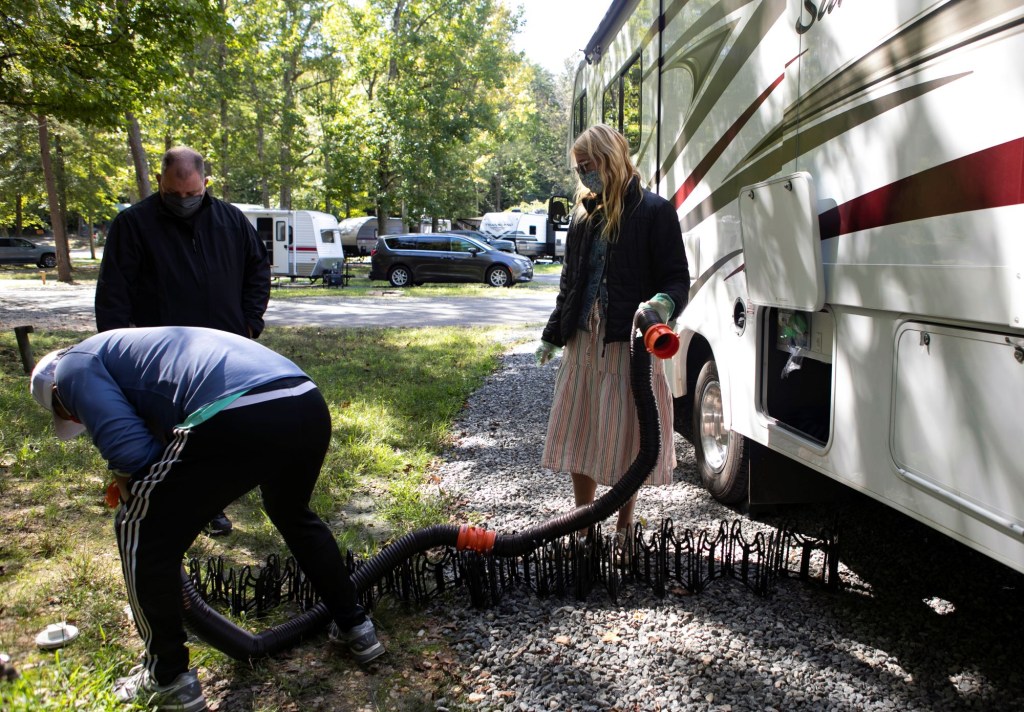
Can You Dump Gray Water on the Ground?
For people cruising around the country in campers, understanding the laws will save you a lot of trouble. For example, depending on where you end up, living in an RV full time may be illegal. Another example is throwing gray water on the ground. Less experienced RVers might have never heard of gray water, let alone know that it’s illegal to throw it on the ground. The last thing travelers or boondockers need is to get hit with a hefty fine.
What is gray water, and is it dangerous?

Gray water is known by other names, including “greywater” and sullage. It’s generally defined as domestic wastewater from drainage streams containing very little to no human waste. Gray water streams typically come from bathtubs, showers, sinks, dishwashers, and washing machines. Streams fed from toilets, urinals, or anything else where human waste is disposed of is defined as black water.
Households and commercial buildings are the most common sources of gray water in the United States. While it’s not as dangerous as water polluted by chemical factories, it likely contains various detergents, bath soaps, bacteria, and other things that could lead to illness. For this reason, gray water should never be consumed by humans or animals.
Fewer pathogens are typically found in domestic gray water, so health officials consider it a lot safer to handle. In addition to that, it’s easier to treat wastewater with an appropriate filtration system. It can then be reused onsite to flush the toilet and other non-potable (water meant for human consumption) applications.
Urban wastewater subsystems can also benefit substantially from gray water, as it minimizes the amount of wastewater conveyed to water treatment facilities for treatment. Furthermore, fresh, consumable water from the water supply subsystems won’t be wasted on flushing toilets, watering plants, lawn and garden irrigation, or treating wastewater.
Why is it illegal to dump gray water on the ground?
According to Boondocker’s Bible, “State laws and regulations vary from state to state, and vary from one park, forest, or beach to the next.” However, when it comes to land owned, operated, and/or managed by various federal agencies, you can almost bet that it’s illegal. The Bureau of Land Management (responsible for administering federal lands) is the only federal agency that doesn’t make dumping gray water illegal.
“However, in areas where the BLM manages developed campgrounds, recreational areas, or wildlife preserves, they may prohibit such activity on a case-by-case basis,” the Boondocker’s Bible points out. These are areas where many van-lifers and RVers like to stay, so it’s definitely a good idea to check before dumping your gray water somewhere. One should also understand the difference between a campground, RV campground, and RV resort.
Other federal organizations, including the U.S. Forestry Service, the National Park Service, the Bureau of Reclamation, and the Army Corps of Engineers, have prohibited the dumping of gray water. The author of the report stated that since agencies like the Bureau of Reclamation and Army Corps of Engineers focus “on bodies of water (lakes and rivers), it’s understandable that dumping wastewater [sic] of any kind on the ground is not permitted.”
How to dispose of sullage from an RV properly
To start with, rather than disposing of all of your RV gray water from your gray water tank, think of other creative things to do with it. For example, rather than filling your RVs kitchen sink with water to do the dishes, purchase a separate dish pan for washing dishes. You can store it in a gallon plastic jug or bucket for flushing your RVs toilet; use it for putting out campground fires or barbeque pits; use it to clean something else if the water isn’t greasy, among other things.
Some blogs written on this topic have advised using dishwater to water plants or shrubs. However, doing so may cause root and stem rot, so it’s a terribly counterintuitive idea.
Probably the best thing to do with your gray water is to recycle it so that you’re doing your part to be environmentally responsible. This is because gray water will limit where, how long, and with how many people you travel in an RV with. Other than that, the only legal way to dispose of gray water is by doing so at a clearly designated gray and black water dumping station.


